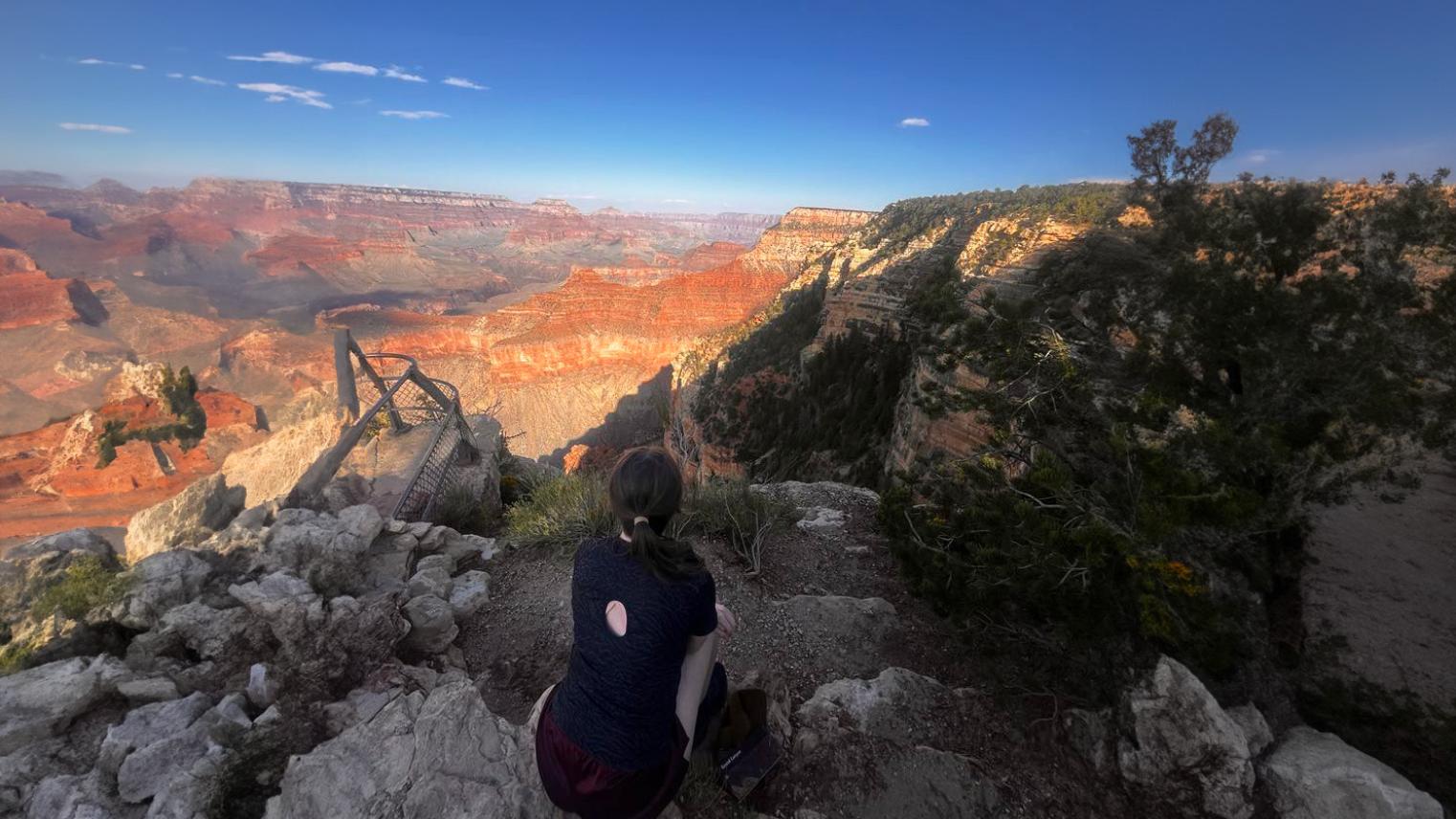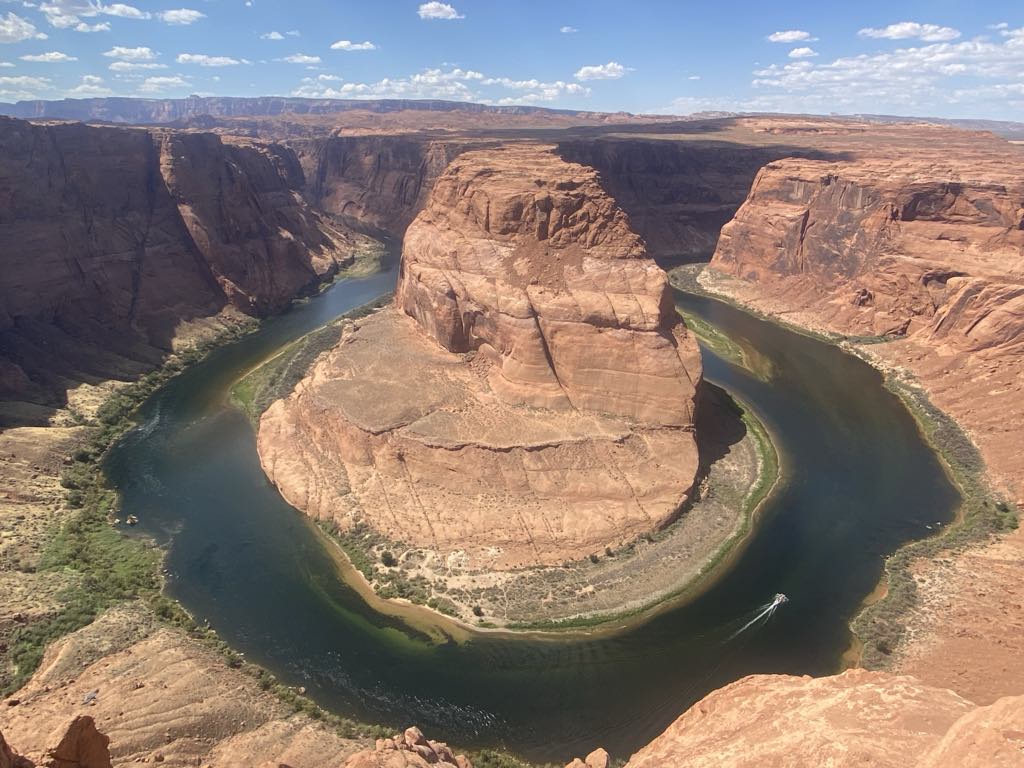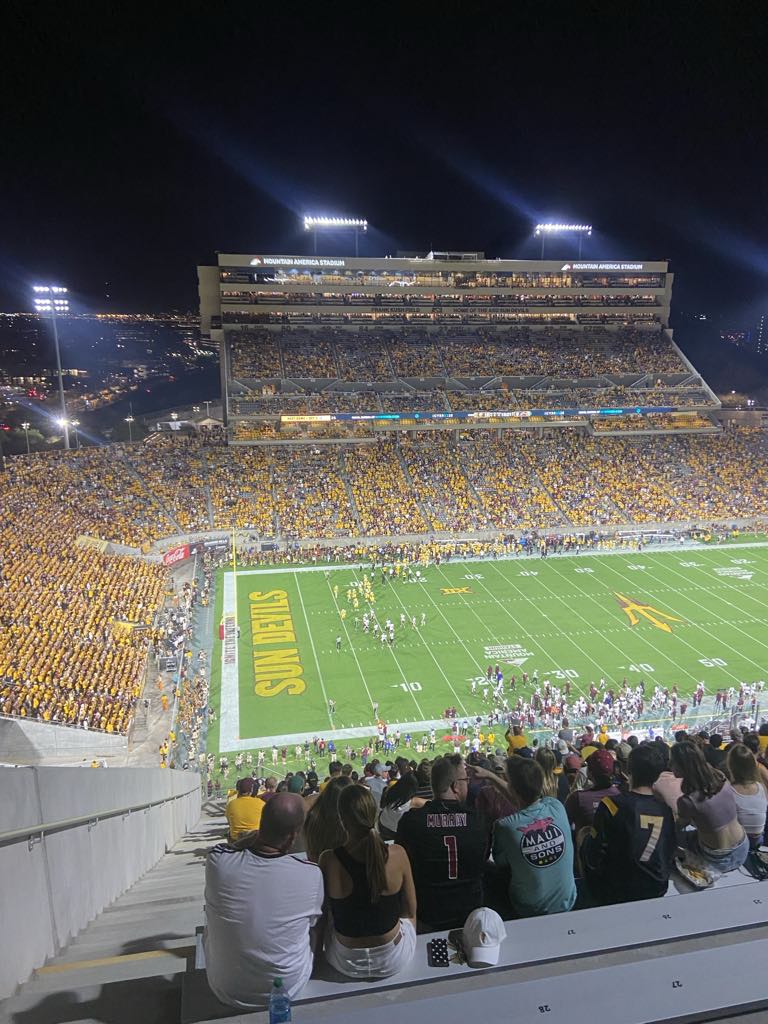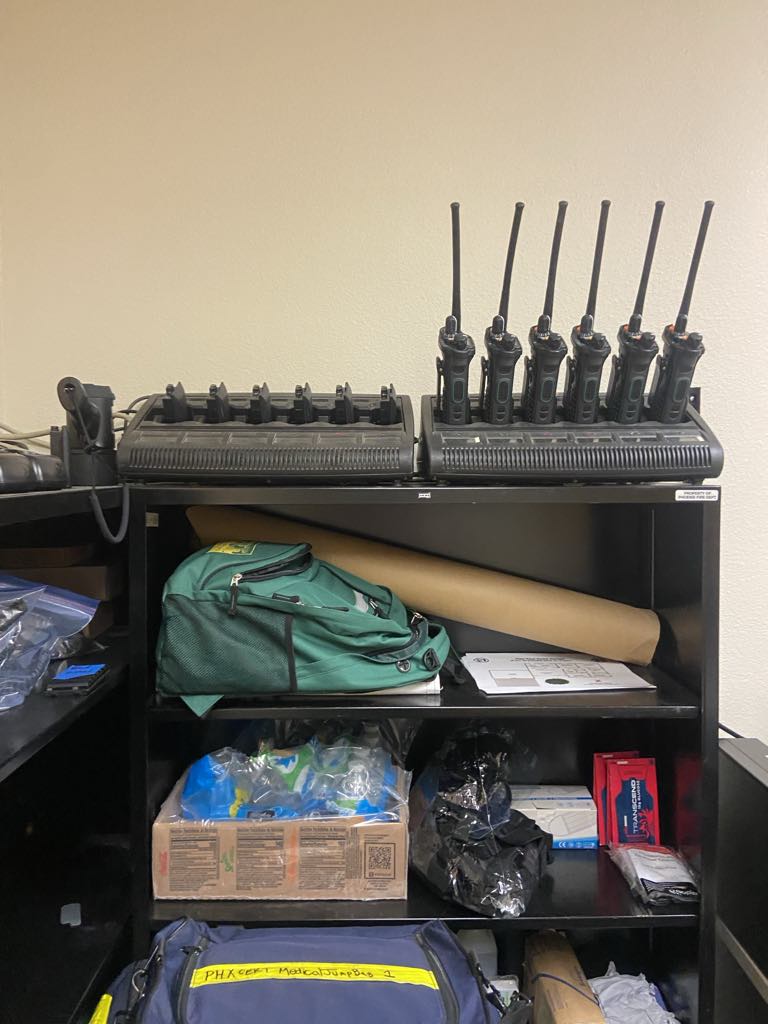PhD spotlight: Meet Maegan Miccelli

A third-year PhD student at the ANU School of Regulation and Global Governance (RegNet), Maegan Miccelli is interested in research on extreme heat governance and vulnerability. A trained social scientist, she has worked with leading Australian researchers and police practitioners on a range of projects examining crisis adaptation and governance. In this Q&A, Maegan shares how her PhD journey is going and what keeps her motivated.
Tell us a little about yourself
I’m Maegan – but my friends call me May. I’m a third-year PhD student at RegNet studying how emergency management interacts with and governs extreme heat. I was lucky enough to travel to Phoenix, Arizona, in 2023, 2024 and 2025 for my fieldwork, and I’m now settling into a routine of writing my thesis.
What inspired you to pursue a PhD?
My first real go at research was in 2021, during the Honours year of my Arts (Criminology) degree. That’s when I met my supervisor Associate Professor Jarrett Blaustein, who supported my first fieldwork journey in rural Victoria. During that time, I spoke with community members who had been impacted by the Black Summer Bushfires and their stories resonated deeply. I felt I had an important story to tell. My work has continued since, and I’ve been able to exercise more agency over my research agenda with extreme heat – the number one weather-related killer in the United States – in application of my theoretical learnings in Regulation and Governance.
What has been the most challenging part of the PhD journey to date?
The most challenging part so far has been asserting myself as a capable and confident researcher. It’s tough sometimes, especially as a young woman in a big room with big thinkers, but this journey has helped me recognise that I have important ideas and contributions to make.
Though even without that element, a PhD is confronting in many ways by default. You learn skills you didn’t know you needed; you learn to think – really think – about the world through a self-directed, critical lens; and, in some cases, you learn to navigate a foreign community while trying to do your job well. It’s hard but it’s worth it. I'm enjoying what it really means to be ‘curious’ with a focus.
How do you stay motivated?
My subject matter motivates me. It’s important to be invested in what you’re researching. Extreme heat is a killer, and after reading news and hearing stories directly from communities during fieldwork, I feel a strong commitment to equity and empowerment in my research. I want to elevate my participants’ voices and share their stories while doing my part through research to contribute to equitable social policy for extreme heat governance.
Who has been your source of support?
My Opa (grandfather) is my greatest cheerleader. Even though he is in Melbourne while I am in Canberra, we exchange texts, letters, FaceTimes and the occasional in-person luncheon to trade ideas and see the world through each other's eyes. I learn a lot from him, and he’s always encouraged me to stand up for what I believe in.
My partner has also undoubtedly been my rock through this process. Through the frustrating moments when I’m unsure if what I’m doing is right or worth it, or the times when my PhD is the only thing going right, I am wholly and graciously supported. Time together, whether it’s a movie, a trip to the arboretum or just chatting over a meal, pulls me through. That space to momentarily forget work is precious.
Tell us about your fieldwork experience
Fieldwork was challenging, but ultimately super memorable. Flying to the other side of the world on your own and dedicating your life to learning about others’ lives feels like a privilege I’ll never have again. I was so lucky that my participants were not only really kind, but also immensely supportive of my research.
They shared parts of their lives that I would never have experienced otherwise. I learned how to put out fires, perform basic first aid and was invited to participate in the City’s Stop the Bleed program. I visited cooling centres and learnt more about the harm reduction initiatives for opioid use. I was trained by the Fire Department in community emergency response, and I discovered that putting lavender syrup in coffee is surprisingly delicious! I went to political rallies, tabletop exercises, live music events, baseball and college football, visited the Grand Canyon, Antelope Canyon and Horseshoe Bend. It was truly the experience of a lifetime.
What advice would you give to someone just starting their PhD or to those midway through like yourself?
It’s important to take your time and figure out what you actually want to do with these years. In my case, I spent my first year working on a project I ultimately didn’t enjoy. It caused a whole lot of stress on at the start of my second year, but when I finally arrived at my own ideas and what I was really passionate about, the journey became fascinating and exciting.
It’s a privilege to take years out of your life to just learn about something. Yes, that comes with its challenges, but the knowledge you gain – academic and otherwise – about the world and the people around you is worth it. So, take your time and soak it all in. It isn’t lost on me that I’ll never get this opportunity again. For now, I’m happy thinking, writing, sharing ideas and creating something unique.


